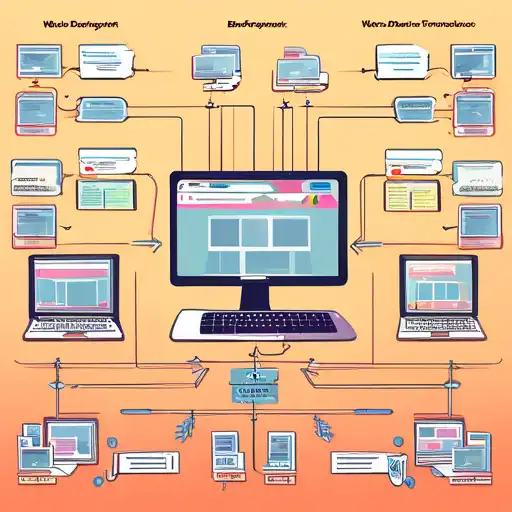Understanding Web Development Frameworks
In the ever-evolving world of web development, choosing the right framework is crucial for building efficient, scalable, and maintainable websites and applications. With a plethora of options available, developers often find themselves at a crossroads, trying to determine which framework best suits their project needs.
What Are Web Development Frameworks?
Web development frameworks are software libraries designed to support the development of web applications by providing a standard way to build and deploy them. They offer a foundation upon which developers can build, eliminating the need to start from scratch and speeding up the development process.
Key Factors to Consider When Choosing a Framework
Selecting the right framework involves considering several factors, including the project requirements, the learning curve, community support, and future scalability. Below are some critical aspects to keep in mind:
- Project Requirements: The nature of your project plays a significant role in determining the most suitable framework. For instance, a content-heavy website might benefit from a CMS like WordPress, whereas a single-page application might require Angular or React.
- Learning Curve: Some frameworks are more beginner-friendly than others. If you're new to web development, you might want to start with something like Bootstrap or jQuery before moving on to more complex frameworks.
- Community Support: A strong community can be a lifesaver when you encounter bugs or need advice. Frameworks like Django and Ruby on Rails have vibrant communities that contribute to their continuous improvement.
- Scalability: Consider whether the framework can handle your project's growth. Frameworks like Laravel and Express.js are known for their scalability and are often used for large-scale applications.
Popular Web Development Frameworks in 2023
Here's a look at some of the most popular web development frameworks today:
- React: A JavaScript library for building user interfaces, particularly single-page applications.
- Angular: A platform and framework for building single-page client applications using HTML and TypeScript.
- Vue.js: An approachable, performant, and versatile framework for building web user interfaces.
- Django: A high-level Python web framework that encourages rapid development and clean, pragmatic design.
Conclusion
Choosing the right web development framework is a decision that should not be taken lightly. It requires a thorough understanding of your project's needs, your team's expertise, and the long-term goals of your application. By considering the factors outlined above and exploring the popular frameworks available, you can make an informed decision that will set your project up for success.
For more insights into web development, check out our articles on Web Development Trends and Frontend vs Backend Development.
